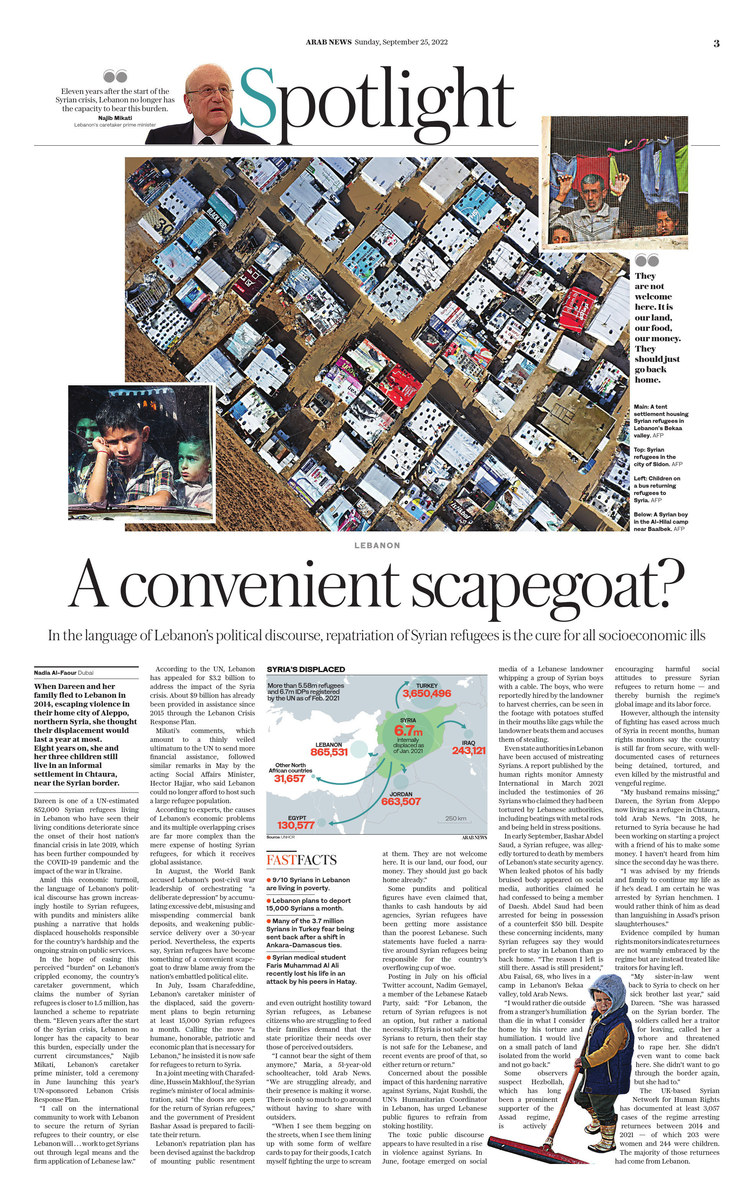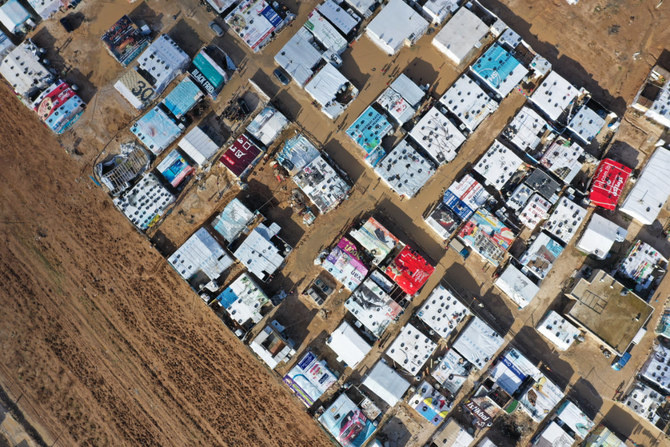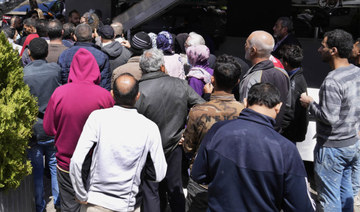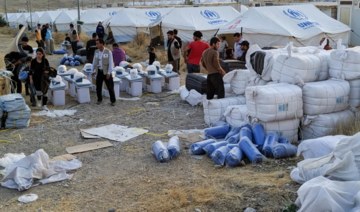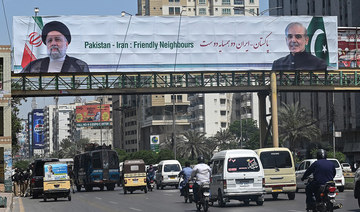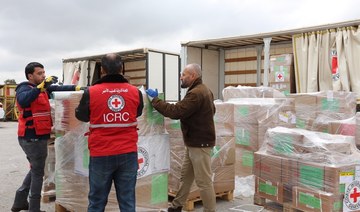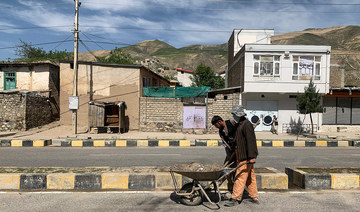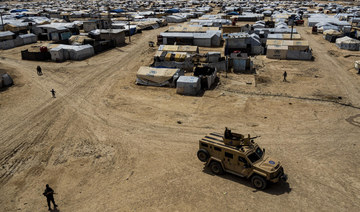DUBAI: When Dareen and her family fled to Lebanon in 2014, escaping violence in their home city of Aleppo, northern Syria, she thought their displacement would last a year at most. Eight years on, she and her three children still reside in an informal settlement in Chtaura, near the Syrian border.
Dareen is one of a UN-estimated 852,000 Syrian refugees residing in Lebanon, who have seen their living conditions deteriorate since the onset of their host nation’s financial crisis in late 2019, which has been further compounded by the COVID-19 pandemic and the impact of the war in Ukraine.
Amid this economic turmoil, the language of Lebanon’s political discourse has grown increasingly hostile to Syrian refugees, with pundits and ministers alike pushing a narrative that holds displaced households responsible for the country’s hardship and the ongoing strain on public services.

In the hope of easing this perceived “burden” on Lebanon’s crippled economy, the country’s caretaker government, which claims the number of Syrian refugees is closer to 1.5 million, has launched a scheme to repatriate them.
“Eleven years after the start of the Syrian crisis, Lebanon no longer has the capacity to bear this burden, especially under the current circumstances,” Najib Mikati, Lebanon’s caretaker prime minister, told a ceremony in June launching this year’s UN-sponsored Lebanon Crisis Response Plan.
“I call on the international community to work with Lebanon to secure the return of Syrian refugees to their country, or else Lebanon will ... work to get Syrians out through legal means and the firm application of Lebanese law.”

Lebanon’s caretaker prime minister Najib Mikati. (AFP file)
According to the UN, Lebanon has appealed for $3.2 billion to address the ongoing impact of the Syria crisis. Around $9 billion has already been provided in assistance since 2015 through the Lebanon Crisis Response Plan.
Mikati’s comments, which amount to a thinly veiled ultimatum to the UN to send more financial assistance, followed similar remarks in May by the acting Social Affairs Minister Hector Hajjar, who said Lebanon could no longer afford to host such a large refugee population.
According to experts, the causes of Lebanon’s economic problems and its multiple overlapping crises are far more complex than the mere expense of hosting Syrian refugees, for which it receives global assistance.
In August, the World Bank accused Lebanon’s post-civil war leadership of orchestrating “a deliberate depression” by accumulating excessive debt, misusing and misspending commercial bank deposits, and weakening public-service delivery over a 30-year period.
Nevertheless, the experts say, Syrian refugees have become something of a convenient scapegoat to draw blame away from the nation’s embattled political elite.
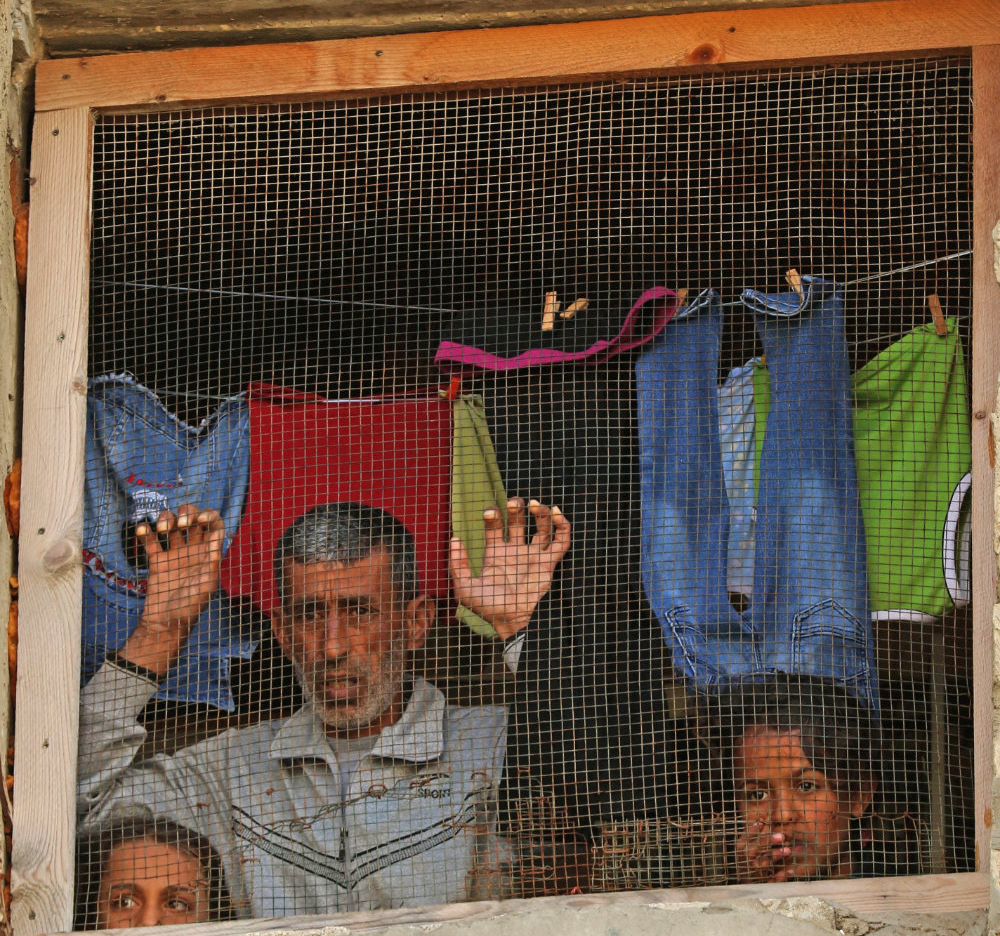
Syrian refugees are being conveniently blamed for Lebanon's economic troubles. (AFP file)
In July, Issam Charafeddine, Lebanon’s caretaker minister of the displaced, said the government plans to begin returning at least 15,000 Syrian refugees per month. Calling the move “a humane, honorable, patriotic and economic plan that is necessary for Lebanon,” he insisted it is now safe for refugees to return to Syria.
In a joint meeting with Charafeddine, Hussein Makhlouf, the Syrian regime’s minister of local administration, said “the doors are open for the return of Syrian refugees,” and the government of President Bashar Assad is prepared to facilitate their return.
Lebanon’s repatriation plan has been devised against the backdrop of mounting public resentment and even outright hostility toward Syrian refugees, as Lebanese citizens who are struggling to feed their families demand that the state prioritize their needs over those of perceived outsiders.
“I cannot bear the sight of them anymore,” Maria, a 51-year-old schoolteacher, told Arab News. “We are struggling already, and their presence is making it worse. There is only so much to go around without having to share with outsiders.
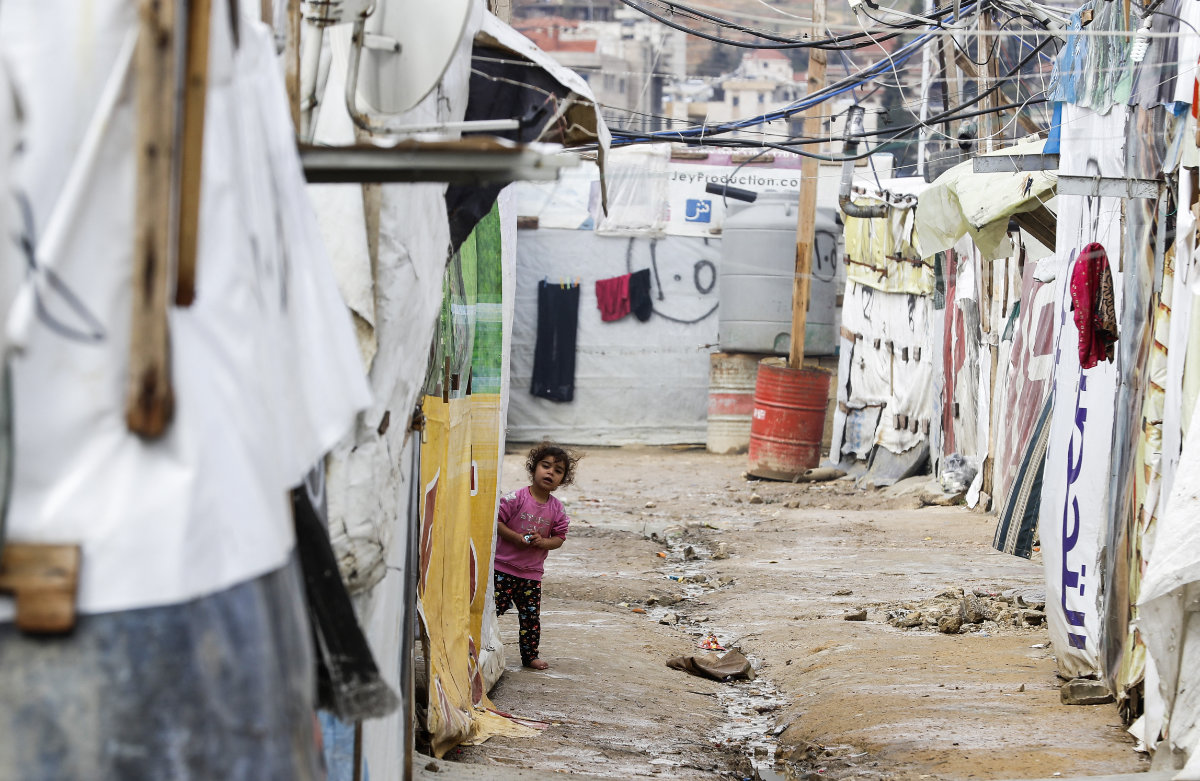
For many, the sight of Syrian children wallowing in poverty in refugee camps has become unbearable. (AFP)
“When I see them begging on the streets, when I see them lining up with some form of welfare cards to pay for their goods, I catch myself fighting the urge to scream at them. They are not welcome here. It is our land, our food, our money. They should just go back home already.”
Some pundits and political figures have even claimed that, thanks to cash handouts by aid agencies, Syrian refugees have been getting more assistance than the poorest Lebanese. Such statements have fueled a narrative around Syrian refugees being responsible for the country’s overflowing cup of woe.

Syrian refugees prepare to leave the Lebanese capital, Beirut, for their journey home to Syria on Sept. 4, 2018. (AFP file)
Posting in July on his official Twitter account, Nadim Gemayel, a member of the Lebanese Kataeb Party, said: “For Lebanon, the return of Syrian refugees is not an option, but rather a national necessity. If Syria is not safe for the Syrians to return, then their stay is not safe for the Lebanese, and recent events are proof of that, so either return or return.”
Concerned about the possible impact of this hardening narrative against Syrians, Najat Rushdi, the UN’s Humanitarian Coordinator in Lebanon, has urged Lebanese public figures to refrain from stoking hostility.
FASTFACTS
9/10 Syrians in Lebanon are living in poverty.
Lebanon plans to deport 15,000 Syrians a month.
Many of the 3.7 million Syrians in Turkey fear being sent back after a shift in Ankara-Damascus ties.
Syrian medical student Faris Muhammad Al Ali recently lost his life in an attack by his peers in Hatay.
The hostile public discourse appears to have resulted in an uptick in violence against Syrians. In June, footage emerged on social media of a Lebanese landowner whipping a group of Syrian boys with a cable.
The boys, who were reportedly hired by the landowner to harvest cherries, can be seen in the footage with potatoes stuffed in their mouths like gags while the landowner beats them and accuses them of stealing.
Even state authorities in Lebanon have been accused of mistreating Syrians. A report published by the human rights monitor Amnesty International in March 2021 included the testimonies of 26 Syrians who claimed they had been tortured by Lebanese authorities, including beatings with metal rods and being held in stress positions.
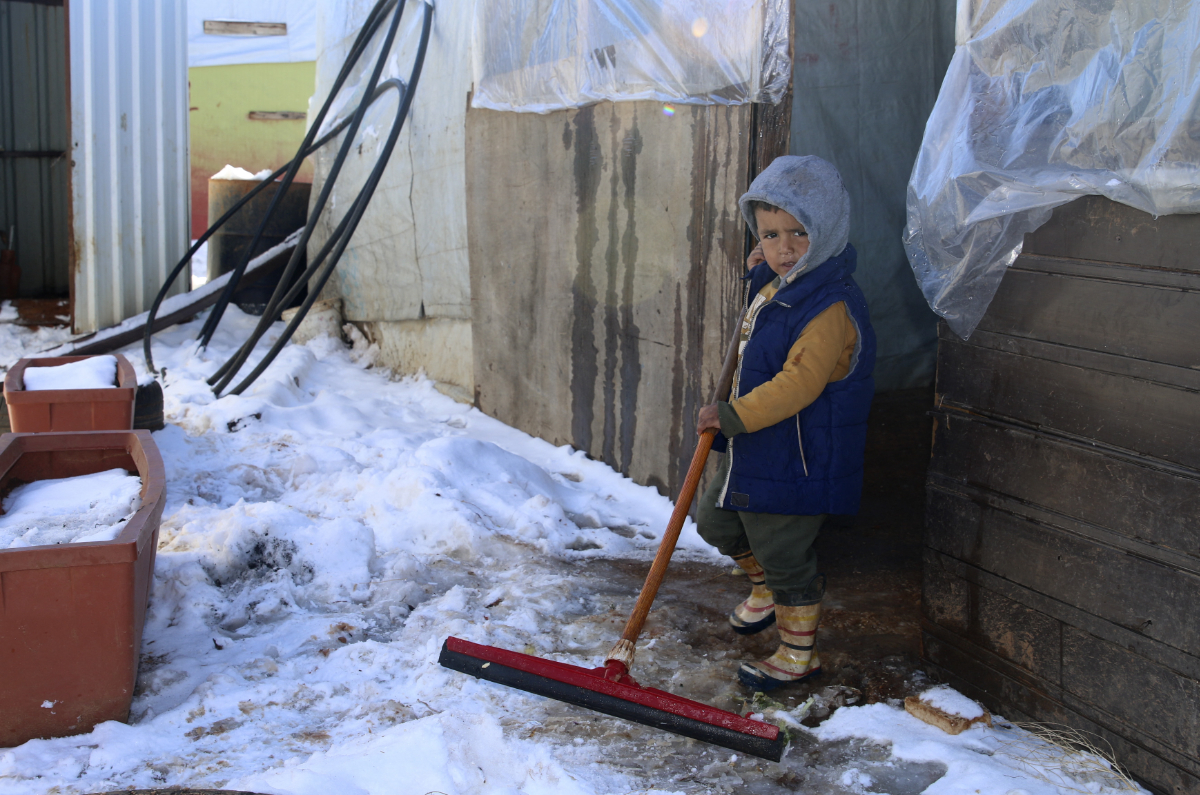
A Syrian boy clears snow from the entrance of a tent at a refugee camp near Baalbek in Lebanon's Bekaa Valley on Jan. 20, 2022. (AFP file)
In early September, Bashar Abdel Saud, a Syrian refugee, was allegedly tortured to death by members of Lebanon’s state security agency. When leaked photos of his badly bruised body appeared on social media, authorities claimed he had confessed to being a member of Daesh. Abdel Saud had been arrested for being in possession of a counterfeit $50 bill.
Despite these concerning incidents, many Syrian refugees say they would prefer to stay in Lebanon than go back home. “The reason I left is still there. Assad is still president,” Abu Faisal, 68, who lives in a camp in Lebanon’s Bekaa valley, told Arab News.
“I would rather die outside from a stranger’s humiliation than die in what I consider home by his torture and humiliation. I would live on a small patch of land isolated from the world and not go back.”
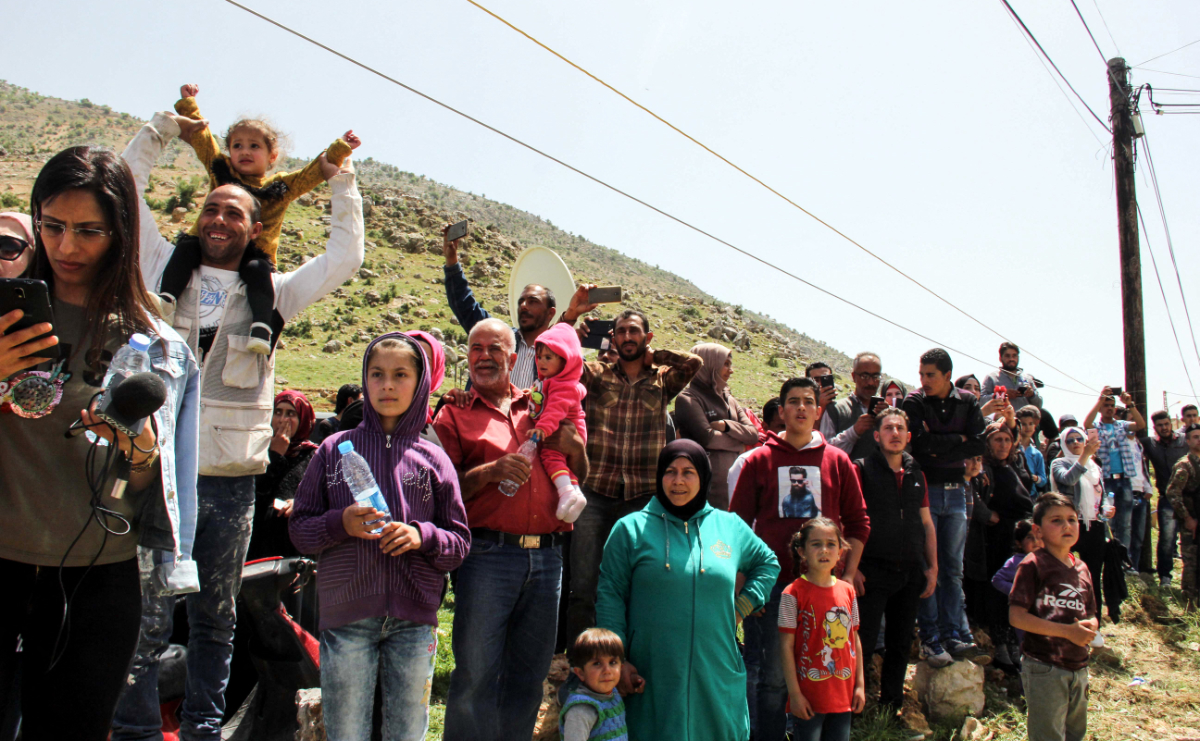
Syrian refugees wait to be evacuated from the southern Lebanese village of Shebaa on April 18, 2018, to return home to their village near Damascus. (AFP)
Some observers suspect Hezbollah, which has long been a prominent supporter of the Assad regime, is actively encouraging harmful social attitudes to pressure Syrian refugees to return home — and thereby burnish the regime’s global image.
Although the intensity of fighting has eased across much of Syria in recent months, human rights monitors say the country is still far from secure, with well-documented cases of returnees being detained, tortured, and even killed by the security services of the regime.
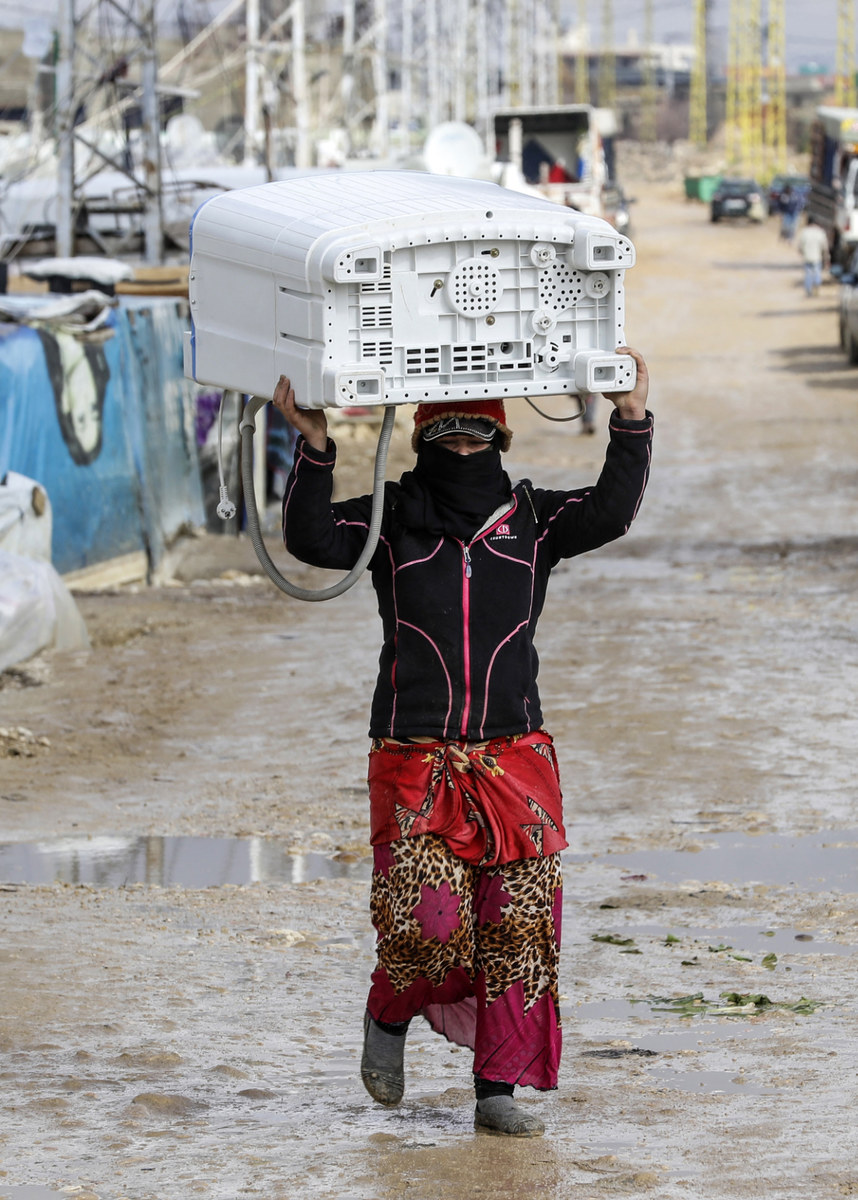
Deprived of their husbands, many Syrian women refugees have to do heavy work to survive. (AFP file)
“My husband remains missing,” Dareen, the Syrian from Aleppo now living as a refugee with her family in Chtaura, told Arab News. “In 2018, he returned to Syria because he had been working on starting a project with a friend of his to make some money. I haven’t heard from him since the second day he was there.
“I was advised by my friends and family to continue my life as if he’s dead. I am certain he was arrested by Syrian henchmen. I would rather think of him as dead than languishing in Assad’s prison slaughterhouses.”
Evidence compiled by human rights monitors indicates returnees are not warmly embraced by the regime but are instead treated like traitors for having left.
“My sister-in-law went back to Syria to check on her sick brother last year,” said Dareen. “She was harassed on the Syrian border. The soldiers called her a traitor for leaving, called her a whore and threatened to rape her. She didn’t even want to come back here. She didn’t want to go through the border again, but she had to.”
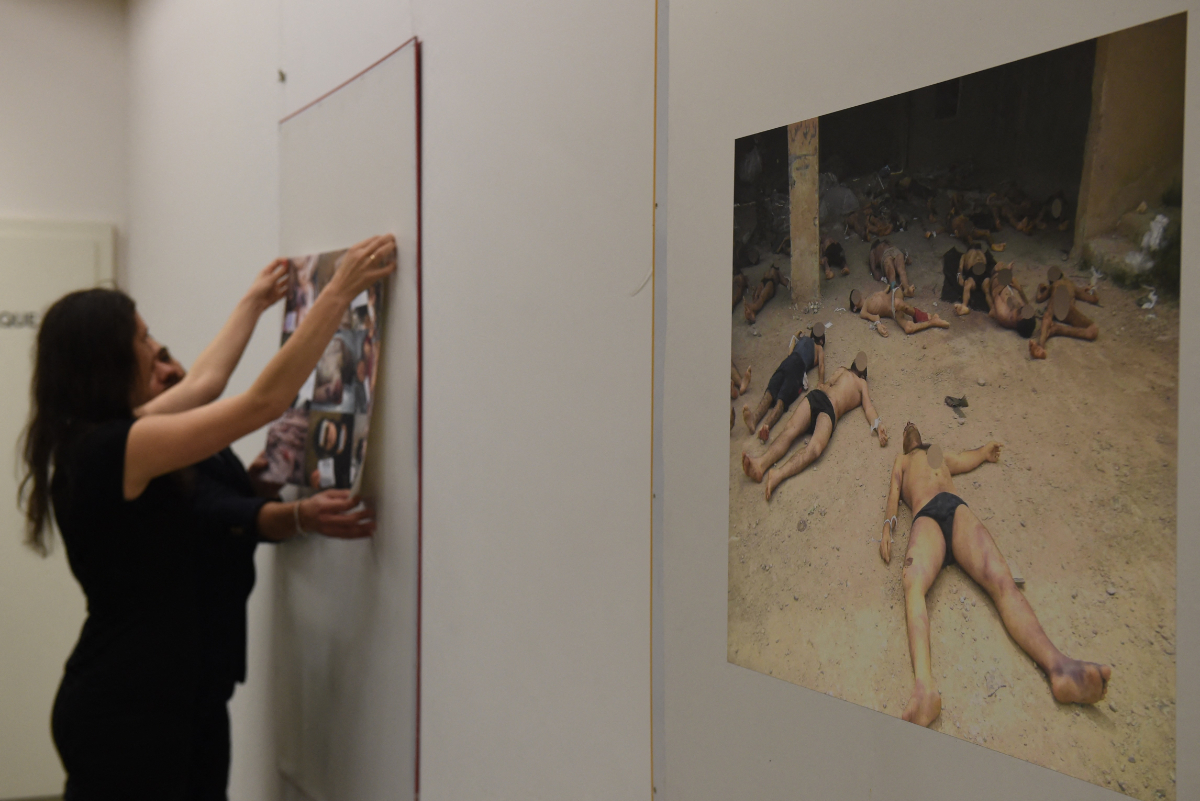
Members of the Syrian Organization for the Victims of War (SOVW) display pictures documenting the torture of detainees inside the Assad regime's prisons and detention centers. (AFP)
The UK-based Syrian Network for Human Rights has documented at least 3,057 cases of the regime arresting returnees between 2014 and 2021 — of which 203 were women and 244 were children. The majority of those returnees had come from Lebanon.
In light of these threats to the lives and well-being of returnees, aid agencies have repeatedly called on the Lebanese government not to deport refugees and to continue offering them sanctuary.
“Lebanon is obligated not to return or extradite anyone at risk of torture and is bound by the principle of non refoulement in customary international law, as a party to the Convention against Torture and Cruel, Inhuman or Degrading Punishment,” New York-based monitor Human Rights Watch said in a report in July.
UNHCR, the UN refugee agency, has likewise reminded the Lebanese government of its duty “to respect the fundamental right of all refugees to a voluntary, safe and dignified return.”
